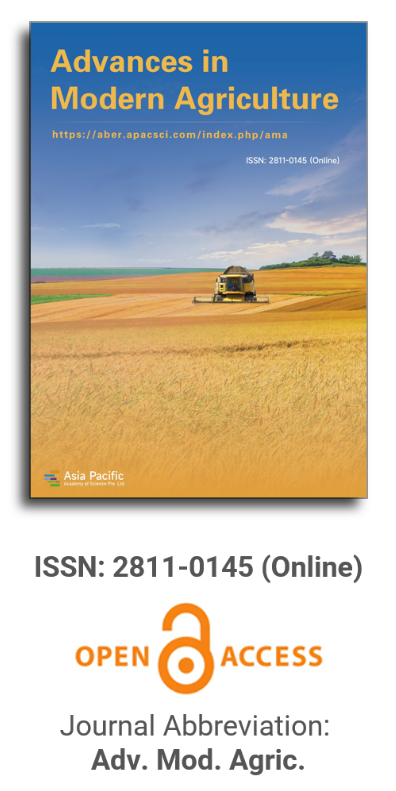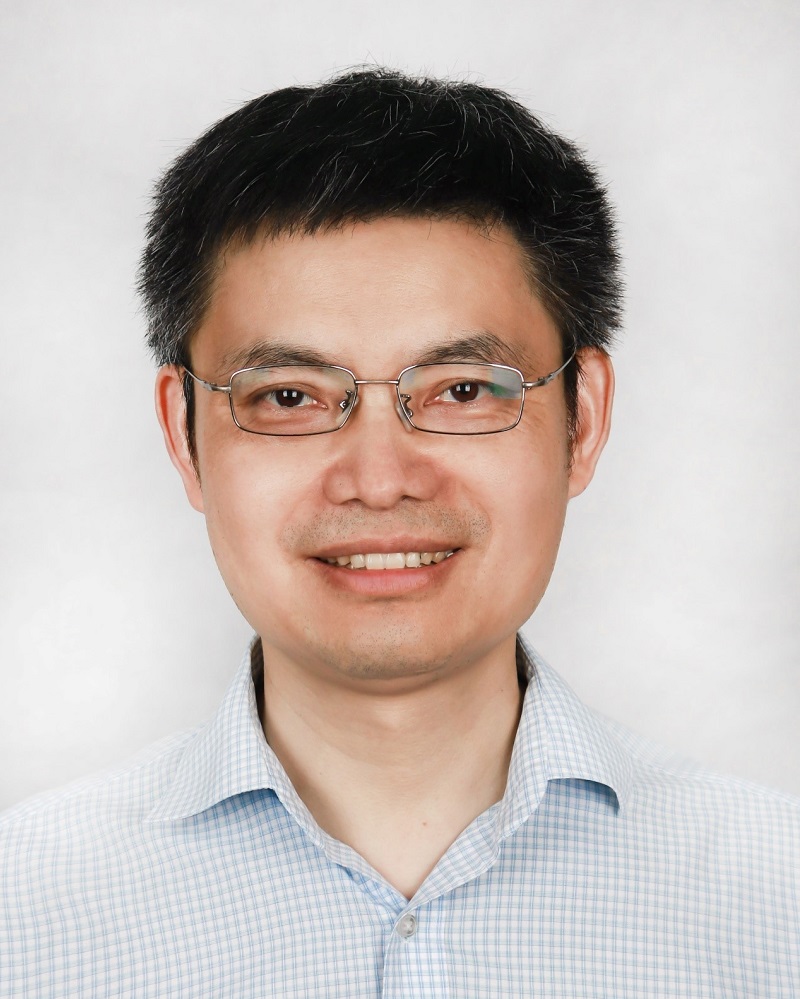


Agroecology or modern conventional agriculture? Positions of Argentine rural extensionists
Vol 1, Issue 1, 2020
VIEWS - 8828 (Abstract)
Download PDF
Abstract
At a global level, there is a growing concern about the sustainability of agricultural production models. In particular, the impacts and environmental passives derived from the implementation of the principles of the so-called Green Revolution. In contrast, agroecology gains supporters in the context of a different productive model, though limited due to lower levels of agricultural productivity. Nevertheless, for any of these models to come into practice, it has to go through farmers’ decision-making. Thus, acknowledging the key role played by rural extensionists in farmers’ decision-making process, in this article the extensionists’ personal positioning and that of their institutions are analyzed in the context of the contrast between agroecology and conventional agriculture. A total of 583 rural extensionists who work in the National Institute of Agricultural Technology, the Subsecretariat of Family Farming and Territorial Development, and other Argentine institutions replied to an online questionnaire. It included sociodemographic questions and asked to position oneself and one’s institution using a five-level Likert-type item, in which agroecology and conventional agriculture were the poles. Results show that, on average, extensionists have a tendency towards the agroecological pole, while they situate their institutions halfway between both agricultural models. In general, women, who have no university degree, and who hold a degree in social sciences, are more oriented to the agroecological pole.
Keywords
References
- da Silva EM, Vieira ETV, Tashima LCN, Guilherme DO. A sustainability rereading of agrarian production systems (Portuguese). Interações (Campo Grande) 2017; 18(4): 43–54. doi: 10.20435/inter.v18i4.1527
- Betancur LM, Girón SM, Betancur LF. The milpa as an alternative for agroecological conversion of conventional agricultural systems of beans (Phaseolus vulgaris), in the municipality El Carmen de Viboral, Colombia (Spanish). IDESIA 2018; 36(1): 123131.
- Capellesso AJ, Cazella AA. Agroecosystem sustainability indicator: case study in corn growing areas (Portuguese). Ciência Rural 2013; 43(12): 2297–2303. doi: 10.1590/s0103-84782013005000130
- Kavitha V, Chandran K. Organic farming in conserving bio diversity in India—A review. Agricultural Reviews 2017; 38(04). doi: 10.18805/ag.r-1709
- Kovács‐Hostyánszki A, Espíndola A, Vanbergen AJ, et al. Ecological intensification to mitigate impacts of conventional intensive land use on pollinators and pollination. Ecology Letters 2017; 20(5): 673–689. doi: 10.1111/ele.12762
- Vasquez P, Vignolles M. Organic agroproductive establishment vs. conventional agriculture: Tandil district, province of Buenos Aires (Spanish). Sociedade & Natureza 2015; 27(2): 267–280. doi: 10.1590/1982-451320150206
- Blesh JM, Barrett GW. Farmers’ attitudes regarding agrolandscape ecology: A regional comparison. Journal of Sustainable Agriculture 2006; 28(3): 121–143. doi: 10.1300/J064v28n03_10
- Capellesso AJ, Cazella AA, Schmitt Filho AL, et al. Economic and environmental impacts of production intensification in agriculture: comparing transgenic, conventional, and agroecological maize crops. Agroecology and Sustainable Food Systems 2016; 40(3): 215–236. doi: 10.1080/21683565.2015.1128508
- Paleologos MF, Iermanó MJ, Blandi ML, Sarandón SJ. Ecological relationships: a central aspect in the redesign of sustainable agroecosystems, from Agroecology. REDES: Revista do Desenvolvimento Regional 2017; 22(2): 92–115. doi: 10.17058/redes.v22i2.9346
- Sarandón SJ, Marasas ME. Brief history of agroecology in Argentina: Origins, evolution and future perspectives. Agroecología 2015; 10(2): 93–102.
- Landini F, Beramendi M, Vargas G. Use and management of agrochemicals in family farmers and rural workers in five Argentine provinces. Revista Argentina de Salud Pública 2019; 10(38): 22–28.
- Pimbert M. Agroecology as an alternative vision to conventional development and climate-smart agriculture. Development 2015; 58(2–3): 286–298. doi: 10.1057/s41301-016-0013-5
- Altieri M, Nicholls C. Agroecology: Theory and practice for a sustainable agriculture (No. 630.2745 A468ag). Available online: http://www.agro.unc.edu.ar/~biblio/AGROECOLOGIA2%5B1%5D.pdf (accessed on 31 October 2018).
- Shennan C, Krupnik TJ, Baird G, et al. Organic and conventional agriculture: A useful framing? Annual Review of Environment and Resources 2017; 42(1): 317–346. doi: 10.1146/annurev-environ-110615-085750
- Zhao R, He P, Xie J, et al. Ecological intensification management of maize in northeast China: Agronomic and environmental response. Agriculture, Ecosystems & Environment 2016; 224: 123–130. doi: 10.1016/j.agee.2016.03.038
- Palmisano T. Alternative agriculture in the context of agribusiness. Experiences in the province of Buenos Aires, Argentina (Spanish). Social Studies Magazine of Contemporary Food and Regional Development 2018; 28(51). doi: 10.24836/es.v28i51.513
- Landini F. Peasant economic rationality. Agrarian World 2011; 12(23).
- Kamiyama A, Maria IC, Souza DCC, et al. Environmental perception of producers and quality only in organic and conventional properties (Spanish). Bragantia 2011; 70(1): 176–184. doi: 10.1590/s0006-87052011000100024
- Chalak A, Irani A, Chaaban J, et al. Farmers’ willingness to adopt conservation agriculture: New evidence from Lebanon. Environmental Management 2017; 60(4): 693–704. doi: 10.1007/s00267-017-0904-6
- Stotz EN. The limits of conventional agriculture and the reasons for its persistence: Case study of Sumidouro, RJ (Spanish). Revista Brasileira de Saúde Ocupacional 2012; 37(125): 114–126. doi: 10.1590/s0303-76572012000100014
- Christoplos I. Mobilizing the potential of rural and agricultural extension. Available online: https://agris.fao.org/search/en/providers/122621/records/64724fc753aa8c896305dcf4 (accessed on 31 October 2018).
- Ingram J. Agronomist–farmer knowledge encounters: An analysis of knowledge exchange in the context of best management practices in England. Agriculture and Human Values 2008; 25(3): 405–418. doi: 10.1007/s10460-008-9134-0
- Salomonsson L, Nilsson A, Palmer S, et al. Farming systems education: Case study of Swedish test pilots. Renewable Agriculture and Food Systems 2008; 24(1): 48–59. doi: 10.1017/s1742170508002408
- Guevara MA, Wesz VJ Jr. Gender and agroecology: Case studies in Brazil (Spanish). Agroecología 2013; 7(2): 101–110.
- Siliprandi E. Women and agroecology. New political subjects in family farming. Investigaciones Feministas 2010; 1: 125–137.
- DA Ros CA. The contribution of field visits to the teaching of agricultural sciences at UFRRJ (Portuguese). Revista Ciência em Extensão 2012; 8(1): 107–122.
- Olivera Méndez A. Environmental psychology and rurality. Available online: http://biblioteca.clacso.edu.ar/clacso/se/20150213020711/Hacia_psicologia_ rural.pdf (accessed on 31 October 2018).
Supporting Agencies
Copyright (c) 2020 F Landini, Maite Regina Beramendi

This work is licensed under a Creative Commons Attribution 4.0 International License.

This site is licensed under a Creative Commons Attribution 4.0 International License (CC BY 4.0).

Prof. Zhengjun Qiu
Zhejiang University, China

Cheng Sun
Academician of World Academy of Productivity Science; Executive Chairman, World Confederation of Productivity Science China Chapter, China
Indexing & Archiving
In the realm of modern agriculture, the integration of cutting-edge technologies is revolutionizing the way we approach sustainable farming practices. A recent study published in Advances in Modern Agriculture titled "Classification of cotton water stress using convolutional neural networks and UAV-based RGB imagery" has garnered significant attention for its innovative approach to precision irrigation management. Conducted by researchers from Institute of Data Science and the AgriLife Research and Extension Center of Texas A&M University (authors's information is below). This study introduces a novel method for classifying cotton water stress using unmanned aerial vehicles (UAVs) and convolutional neural networks (CNNs), offering a powerful solution for optimizing water use in agriculture.
Modern agricultural technology is evolving rapidly, with scientists collaborating with leading agricultural enterprises to develop intelligent management practices. These practices utilize advanced systems that provide tailored fertilization and treatment options for large-scale land management.
This journal values human initiative and intelligence, and the employment of AI technologies to write papers that replace the human mind is expressly prohibited. When there is a suspicious submission that uses AI tools to quickly piece together and generate research results, the editorial board of the journal will reject the article, and all journals under the publisher's umbrella will prohibit all authors from submitting their articles.
Readers and authors are asked to exercise caution and strictly adhere to the journal's policy regarding the usage of Artificial Intelligence Generated Content (AIGC) tools.
Asia Pacific Academy of Science Pte. Ltd. (APACSCI) specializes in international journal publishing. APACSCI adopts the open access publishing model and provides an important communication bridge for academic groups whose interest fields include engineering, technology, medicine, computer, mathematics, agriculture and forestry, and environment.



.jpg)
.jpg)

.jpg)
